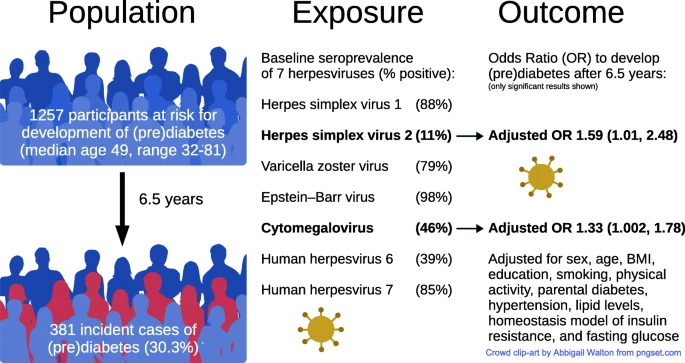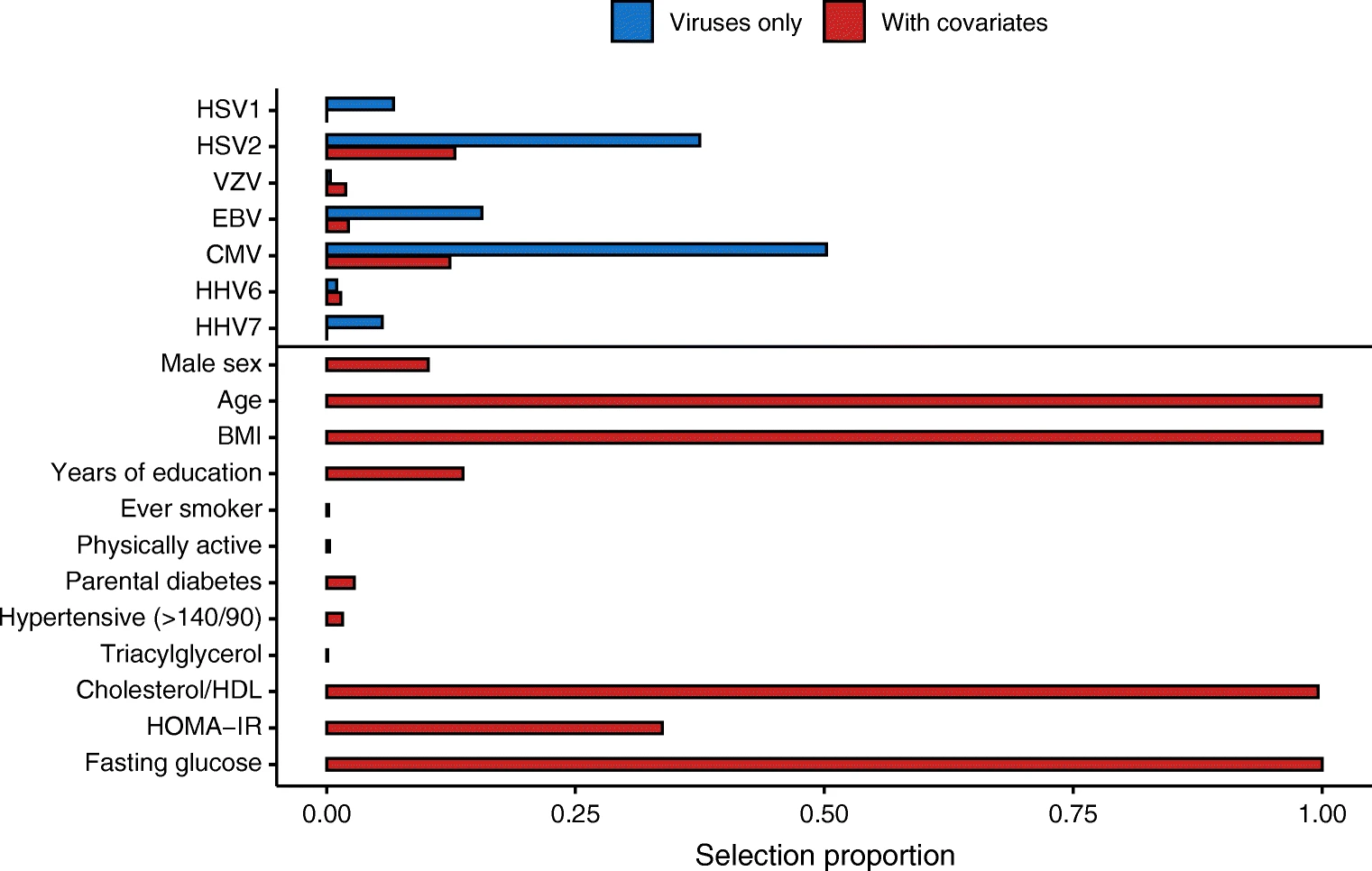In a new study led by German researchers, two common herpes viruses are thought to be associated with the onset of pre diabetes These findings are based on increasing evidence linking viral infection to the development of chronic diseases.

In recent years, scientists have found many convincing links between diseases such as cancer, multiple sclerosis or Alzheimer's disease and infectious pathogens. In some cases, these relationships are clear causality. For example, we know that human papillomavirus (HPV) infection directly leads to 90% of cervical cancer, and the new HPV vaccine is expected to almost eliminate this form of cancer in the near future.
Other relationships may be more of a factor in the many elements that lead to disease. To date, one of the most groundbreaking scientific discoveries in 2022 is an important study that confirms the link between Epstein Barr virus (EBV) infection and multiple sclerosis (MS).
This landmark study shows that EBV infection is not the only cause of multiple sclerosis. After all, the virus is very common, and not everyone infected will eventually develop neurodegenerative diseases. On the contrary, the study confirmed that although not all EBV infections lead to multiple sclerosis, all cases of multiple sclerosis may occur before EBV infection. This means that vaccines against the virus may prevent most cases of multiple sclerosis.
Epstein Barr virus is a member of the larger herpesvirus family. Eight types of herpes viruses are known to cause human diseases, including varicella zoster virus (hhv-3, which causes varicella and herpes zoster). All of these herpes viruses are known to cause latent infections, which means that once people are infected, the virus can be relatively "dormant" in the body for a lifetime.

This new study aims to investigate whether there is any association between latent herpes virus infection and the development of pre diabetes, a metabolic state that usually precedes the onset of type 2 diabetes. To do this, the researchers analyzed data from a long-term health study that followed thousands of people for about seven years.
The presence of seven herpesviruses was tracked at baseline and diabetes biomarkers were measured at follow-up years later. During the follow-up investigation in the past seven years, researchers found that about 360 subjects had the markers of pre diabetes. Two types of herpes virus infection, herpes simplex virus type 2 (HSV-2) and cytomegalovirus (CMV), are frequently detected in people who develop pre diabetes.
"Multivariable analysis showed that the two viruses contributed to the occurrence of (prophase) diabetes in a consistent and complementary manner, which was not related to gender, age, BMI, education, smoking, physical activity, parental diabetes, hypertension, blood lipid level, insulin resistance and fasting glucose," the researchers explained in the new study. "Our variable selection method shows that although the (pre -) incidence rate of diabetes is mainly explained by age, BMI, cholesterol and fasting glucose, both HSV2 and CMV add additional supplementary risk information, despite the high prevalence and co occurrence of the virus."
HSV-2 was the strongest association, and infected people were 59% more likely to have pre diabetes. Those infected with CMV were 33 percent more likely to develop pre diabetes.
The researchers made it clear that their current findings are only a preliminary observational link. Several other known risk factors for diabetes, such as cholesterol and obesity, clearly play a greater role than herpes virus in determining a person's likelihood of developing a metabolic disease. However, these new findings do provide some signals that some types of herpesvirus may play a promoting role.
How do these viruses affect the development of diabetes? It is not clear. At this point, researchers can only assume potential mechanisms, such as herpes virus, which regulates the immune response in a way that affects the body's endocrine system.
Much work is needed to unravel this potential link between herpes virus and diabetes, but the researchers do stress that these findings require more public health work to prevent people from being infected first. Moreover, the development of herpes virus vaccine seems to be a preventive tool to reduce the incidence rate of diabetes in the future.
The new study was published in diabetes 》(diabetes) magazine.